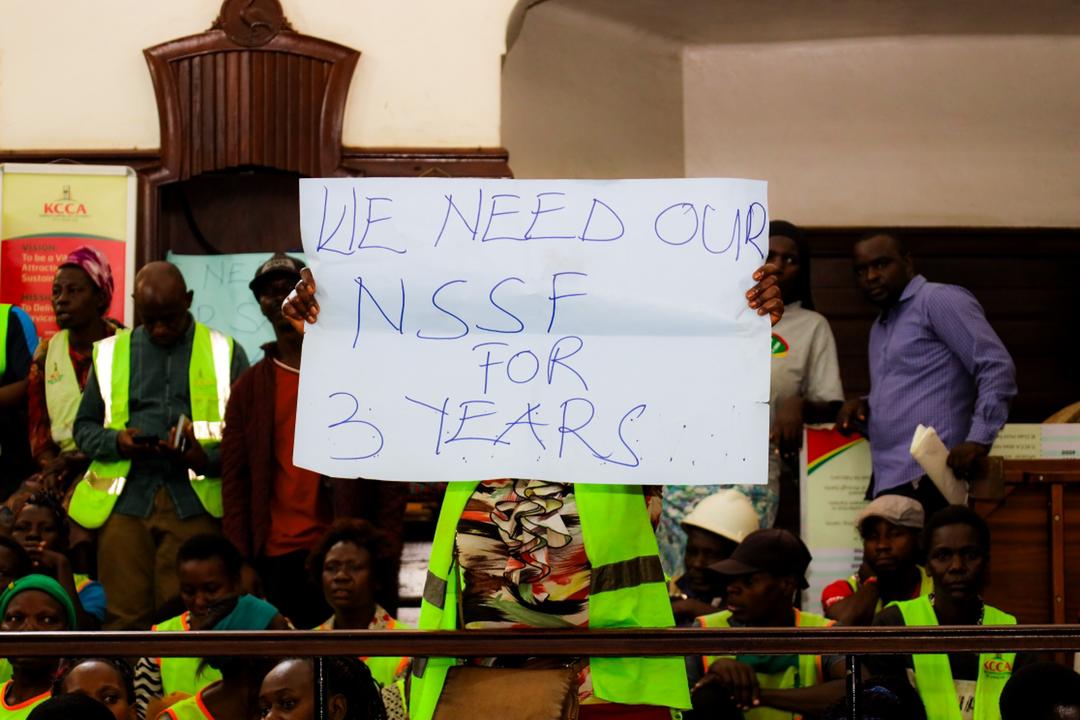Landlord and Tenant bill could bridge gap between poor and rich
Now, I know to some, the Landlord and Tenant bill if passed into law could have adverse effects on the property market or economically.
To others, the bill could affect the right of parties to freely contract. Justifiably so,I must say, however, that I believe in the right of parties having to contract freely.
The same should apply to the relationship between the landlord and the tenant. The landlords are somehow worried about the bill and have argued against it.
Their major concern however, regards section 27 of the bill which restricts landlords from raising rent charges by 10% annually.
Not to mention, section 23 of the same bill which provides for all rent obligations and transactions to be in shillings and not in dollars unless otherwise provided by law.
Using dollars, as the standard currency is one of the biggest rip-offs ever to typify the property market. The excuse for borrowing in dollars does not add up since charging in dollars has been going on for quite some years now.
Of course, for all their idealistic anxieties, many of these landlords are far from what could be categorised as poor since many enjoy a fair share of the national income.
That aside, according to a recent UN Human Development Index report, income inequality ratios are still very high in Uganda despite economic progress.
Although the bill itself is alleged to have its own misgivings, I would like to view it from a different perspective. A perspective entrenched in the rising income inequities to which this bill could be part of the jigsaw puzzle.
This means that this the bill, if passed into law, would be a major step in trying to reduce the gap between the rich and the poor.
It could potentially be a welcome move for many Ugandans especially those from low-income households and many local traders too, especially the low-end traders.
The bill could also mean a level playing field between the landlord and the tenant.
It could signal the end of random evictions by landlords. By the way, rent increments affect many including the youth starting their early lives, the middle-classes even though, it is the poor who always bear the biggest blunt of the hikes.
Income and wealth inequalities are not good for all of us as they could cause social unrest.
It is fair to say that, despite making several strides economically in the country, over the years, the gap between the poor and rich is still a challenge and could even threaten further economic growth.
Nevertheless, this gap between the poor and the rich in the country continues to widen with no end sight. The fuel costs have kept on rising and the same goes for the price of consumables.
But with a rising population in the country and increased urbanisation, it means there is always going to be a shortage of affordable housing in the country.
It means too, that the property sector still has a major role to play in the economy especially, where even Kampala itself, the capital city, has a shortage of just above half a million housing units.
But amidst all this, such a legislation, may be a tiny bit in the whole puzzle of reducing the poverty gap and possibly ensuring equality.
As the low-income households continue to be threatened with lifetimes of poverty, a lot can still be done especially by the government and all policy-makers to see that the poverty gap is even reduced further.
This would require enactment of more legislations in this regard and implementation too, of some social policies to curtail the rising inequities.
But there are other stakeholders in this who include the banking institutions who play a contributory role in this.
The banks lend money to those in the property market which is supposed to be re- paid at high interest rates. To the tenants or a low-end trader, the pinch would be felt in terms of high rent costs.
Even so, the effects trickle down further to the consumer in terms of high cost of consumables. To a young professional who has just acquired a job in the city, getting a place to reside close to their new job would be almost impossible.
This could result in high transport costs which could also have a devastating effect on the environment in the long-run.
But why welcome the bill? To the low-end trader, it means that they will be able to afford rent at a reasonable price not having to worry about it rising in the short run.
This could possibly mean extra money in the pockets of the low-end trader or extra money for low-income households. Such money could be spent on other essentials like school fees or food items.
To the ordinary consumers, this could mean reduced cost of goods. Having an unregulated property market in the country could also have disastrous effects on the economy. Not unusual perhaps in the same property market, for property prices to go up without any improvements on the property.
However, as way of trying to curb the fears of the landlords, this bill may not necessarily result in losses to them.
The bill could mean the end of the property “black property market” where tenants sub-let to others without the consent of landlords.
Cheap and affordable rent could mean that many could afford a chance to own their own space. It is also important to note that there is still a shortage of affordable housing in Kampala due increased urbanisation and the rise in population.
In Europe, big store chains are struggling to make profit as more and more buyers are buying online. Who knows?
This could be the case with Uganda in the future. If the bill turns into Act, it would possibly formalise the relationship between the landlords and tenants which could mean a win-win situation for all in terms of secure deals.
A lot should be done to ensure the poverty gap is reduced. More legislation is needed. For instance, despite outlawing discrimination as enshrined in article 21 of the constitution, we still lack a specific law against discrimination.
It should be a law which not only provides for different grounds of discrimination, but, it should be a law that promotes equality or equal opportunities at school, work place and so on.
Without an express law regarding discrimination, it would be hard for us to say that we are committed to fight inequities like in this case.
In my opinion, that the law above should be a welcome addition in ensuring a fair economy.
Gandhi says, our greatness will be measured by how we treat the weakest in our society. So, there is nothing wrong with having an economy that works for everyone across the societal chain especially the vulnerable.
For the wealthy landlords, it may not be business as usual. However, the reality is that there are many people struggling to get by while others like in the property business continue to reap big in terms of high rents.
This requires all stakeholders to play their part including the banks and the policy-makers too.













